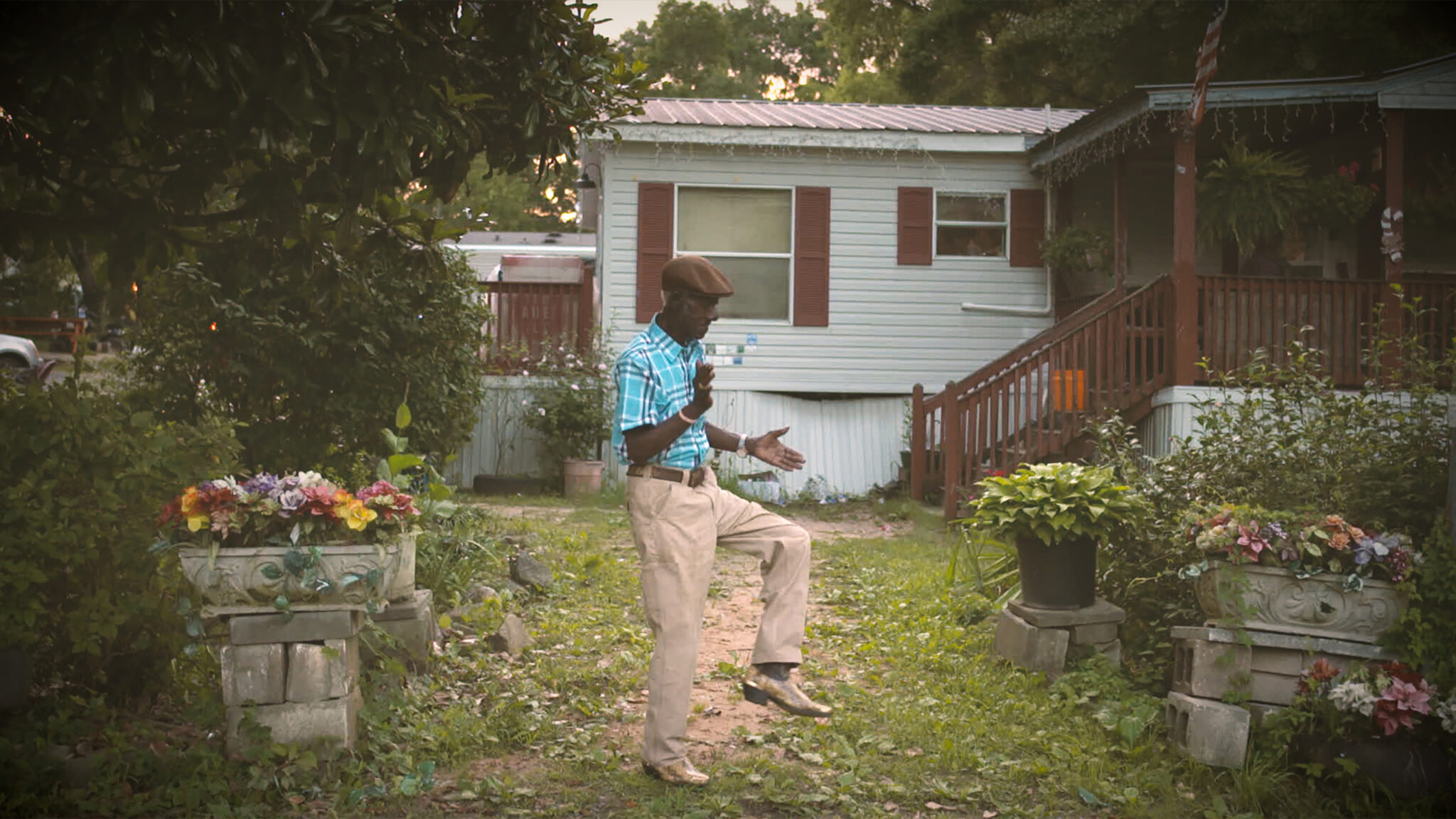[Pictured: The Panola Project]
By Stephanie Ornelas
There’s no shortage of great documentaries that have deep roots with the Sundance Institute and Film Festival.
Whether it’s a nonfiction feature about a favorite icon, a gripping court case, or a crucial civil rights movement, these projects are not only fascinating, but they can help create actual change — and the same goes for documentary shorts.
As we continue our Doctober series celebrating 20 years of the Sundance Institute Documentary Film Program (DFP), we’re highlighting the 25 completed documentary short films that were supported through our Documentary Short Program. Through grants and labs, these initiatives are designed to expand support to creators of short films to deliver authentic, thought-provoking projects.
Below, dive into the past 20 years of supporting independent documentary filmmakers and get to know these 25 short films supported by the Sundance Institute’s Documentary Film Program:
Facing Death, Facing Life (2000 Sundance Documentary Film Grant)
In 2000, director Ingrid Gavshon received support from the DFP through a Documentary Film Fund Grant for Facing Death, Facing Life. The short film tells a story from the perspective of Duma Kumalo, one of the members of the Sharpeville Six, who was convicted of a crime he didn’t commit and sentenced to death. Kumalo was granted a stay a few hours before his execution and now works for a support group for survivors of human rights abuse. (Watch now)
Eddie Adams: SAIGON ’68 (2013 Sundance Documentary Film Grant)
Douglas Sloan’s short film tells the story of the most influential and electrifying photograph to come out of the Vietnam War, and how the picture transformed the lives of Eddie Adams, who captured the moment on film, and Nguyen Ngoc Loan, the man who pulled the trigger. Sloan received a grant from the Sundance Institute’s Documentary Film Program in 2013. (Watch now)
After My Garden Grows (2014 Sundance Documentary Film Grant)
In Megan Mylan’s short film, a young girl in rural India tills a small plot of land to feed her family and plant seeds of independence and financial freedom in her community. Mylan received a Sundance Documentary Film Grant in 2014 and the film premiered in Sundance London’s 2014 Short Film Challenge. (Watch now)
Kombit (2014 Sundance Documentary Film Grant)
Jeff Reichert and Farihah Zaman received support from the Sundance Institute through a grant from the DFP for Kombit. The short follows a group of people in Haiti as they start a garden movement to combat hunger and despair after the earthquake. The film also screened at Sundance London in the Short Film Challenge in 2014. (Watch now)
Vezo (2014 Documentary Film Grant)
Like After My Garden Grows and Kombit, Tod S. Lending’s Vezo premiered at Sundance London’s 2014 Short Film Challenge. Lending also received a grant from the Documentary Film Program for his film. In the short, a young girl tells a tale about how her family and village came back from near starvation after their fishing village adopted sustainable fishing practices. (Watch now)
Alone (2017 MacArthur | Sundance Short Film Fund)
Garrett Bradley’s short film is an investigation into the layers of mass incarceration and its shaping of the modern Black American family, seen through the eyes of a single mother in New Orleans. Bradley received a grant from the Sundance Short Film Fund in 2017, a program supported by the John D. and Catherine T. MacArthur Foundation. (Watch now)
Erica: Man Made (2017 MacArthur | Sundance Short Film Fund)
Director Ilinca Calugareanu received a grant from the Sundance Short Film Fund and the John D. and Catherine T. MacArthur Foundation in 2017 for Erica: Man Made. Her project tells the story of a humanoid robot and Japanese robotic scientist who redefine what it means to be human. (Watch now)
The Fight (2017 MacArthur | Sundance Short Film Fund)
Violeta Ayala’s short film shines light on how people with disabilities are among the most discriminated against in Bolivia. Fed up with being ignored, a group marches to La Paz to speak to President Evo Morales — and they are met with riot police and barricades. Ayala received a grant from the Sundance Short Film Fund and the John D. and Catherine T. MacArthur Foundation in 2017. (Watch now)
The Sprinter Factory (2017 MacArthur | Sundance Short Film Fund)
In 2017, Isaac Solotaroff received a grant from the Sundance Short Film Fund and the John D. and Catherine T. MacArthur Foundation for The Sprinter Factory. His film follows a group of young women sprinters who have their sights set on being Jamaica’s next superstars. (Watch now)
Searching for Saraswati (2017 MacArthur | Sundance Short Film Fund)
Directors Shirley Abraham and Amit Madheshiya received a grant from the Sundance Short Film Fund and the John D. and Catherine T. MacArthur Foundation in 2017 for Searching for Saraswati. In his short film, the Haryana state government in India is in search of a holy river believed to have been lost 4,000 years ago. (Watch now)
A Three Minute Hug (Documentary Film Program | Netflix)
Directed by filmmaker Everardo González, A 3 Minute Hug follows what transpires over the course of a few special minutes — when families, some separated for over a decade, were able to reunite at the U.S./Mexico border. González received support in 2018 from the Documentary Film Program’s partnership with Netflix. (Available to stream on Netflix)
Birders (Documentary Film Program | Netflix) (Available to stream on Netflix)
Otilia Portillo Padua’s short film depicts birdwatchers on both sides of the border of U.S. and Mexico, and how migrant birds travel back and forth over the border each year. In 2019, Padua received support through the Documentary Film Program’s partnership with Netflix.
Lupita (2019 Sundance Institute Native & Indigenous Short Documentary Film Fund)
Director Monica Wise Robles received support for her short film from the 2019 Sundance Institute Native & Indigenous Short Documentary Film Fund. Her film follows a Tzotzil woman and massacre survivor who becomes a spokesperson for her people amid a Mexican Indigenous movement led by women. (Watch now)
After the Raid (Documentary Film Program | Netflix)
In this documentary short by Rodrigo Reyes, a community in East Tennessee fights to stay together after being hit by the largest immigration raid in a decade. González received support in 2019 through the Documentary Film Program’s partnership with Netflix. (Available to stream on Netflix)
Only The Ocean Between Us (2019 Sundance Institute Native & Indigenous Short Documentary Film Fund)
Through video letters between displaced communities on opposite sides of the globe, Only The Ocean Between Us follows four young women as they document their transition from childhood to motherhood. Directors Khaldiya Ghneim, Karol Bautista Pizarro (Shipibo/Konibo), Marah Al-Khatib, and Christy Cauper Silvano (Shipibo/Konibo) received support for their short film from the 2019 Sundance Institute Native & Indigenous Short Documentary Film Fund.
Lorena, Light Footed Woman (Documentary Film Program | Netflix)
One of five short films supported through a partnership with the Documentary Film Program and Netflix, Juan Carlos Rulfo’s short film follows Lorena Ramírez, a Rarámuri woman who likes to run marathons in sandals and traditional dresses. She has become one of the fastest runners in the world. She alternates between the peaceful life in the mountains of Chihuahua surrounded by her family and the demands of the races in and out of Mexico. Rulfo received support from this partnership in 2019. (Available to stream on Netflix)
Paulette (2019 Sundance Institute Native & Indigenous Short Documentary Film Fund)
Heather Rae’s (Cherokee) film follows the historic campaign of Paulette Jordan, the first Native American candidate — as well as the first woman — to win the Idaho Primary for Governor. Rae received support for her short film from the Sundance Institute Native & Indigenous Short Documentary Film Fund in 2019. (Available to watch on Docuseek)
A Tale of Two Kitchens (Documentary Film Program | Netflix)
Trisha Ziff received support from the Documentary Film Program’s partnership with Netflix in 2019 for her short follows Gabriela Camara, a chef who celebrates Mexican food with her unique vision in San Francisco and Mexico City. At her restaurants, everyone is accepted and co-workers cross language barriers to become a family. (Available to stream on Netflix)
The Box (2020 Sundance Institute | Marshall Project Criminal Justice Shorts Documentary Initiative)
The Box is a hybrid short film that combines documentary, animation, and cinematic vignettes to immerse audiences in the world of solitary confinement through the stories of three people who have spent a combined 9 years confined. Directors James Burns and Shal Ngo received support for their short film from the Sundance Institute in 2020 through the Marshall Project Criminal Justice Shorts Documentary Initiative. (Watch now)
Alaskan Son (2021 Sundance Institute | Kendeda Short Film Fund)
Indigenous people comprise 15.7% of Alaska’s population and 25% of the police killings. In Joshua Albeza Branstetter’s short film, a grieving family turns to their community to confront the system that took their son. Branstetter was supported through the Sundance Institute’s Kendeda Short Film Fund in 2021.
KJ (2021 Sundance Institute | Kendeda Short Film Fund)
Joseph Namy’s short is a cinematic memoir exposing the systemic injustice that led to the murder of Khalid Jabara in Oklahoma in 2016. The documentary portrays the tragedy and its aftermath through an intimate and poetic lens. KJ received support through the Sundance Institute’s 2021 Kendeda Short Film Fund.
House of Tulip (2021 Sundance Institute | Kendeda Short Film Fund)
House of Tulip follows two Black trans activists as they run for office and work to build Louisiana’s first housing refuge that provides residency for trans residents. Viewers follow the founders as they fight to use their organization to protect and build their community. Director/producer Cydney Tucker was supported through the Sundance Institute’s Kendeda Short Film Fund in 2021.
SOL (2021 Sundance Institute | Kendeda Short Film Fund)
In this short, supported through the Sundance Institute’s 2021 Kendeda Short Film Fund, a woman, a city, and a community dream of transforming East Oakland from an epicenter of gun violence to a hub for food sovereignty. The film is directed and produced by Emily Cohen Ibañez and Débora Souza Silva.
Women Count (2021 Sundance Institute | Kendeda Short Film Fund)
Davina Pardo’s short film follows a school nurse in Texas who is on a mission to count every woman killed by a man in the United States since 1950. Her campaign reveals staggering numbers, a painful history, and a woman haunted by forgotten victims. Pardo received support through the Sundance Institute’s Kendeda Short Film Fund in 2021 for her short, which she also produced.
The Panola Project (2022 Sundance Film Festival)
Directors Rachael DeCruz and Jeremy S. Levine’s short film premiered in the U.S. Nonfiction Short Films section at the 2022 Sundance Film Festival. Leading up to the film’s screening, Levine received two grants and participated in two labs from the DFP. The Panola Project chronicles the story of how an overlooked rural Black community came together in creative ways to survive COVID-19.
Even before the Documentary Film Program took shape, the Sundance Institute knew that supporting documentary short artists is crucial to the growth and success of independent filmmaking. The shorts below were supported by the Sundance Institute more than 20 years ago through Documentary Film Grants:
Father, Son, Holy Ghost/Otac, sin, sveti duh (1996 Sundance Film Festival)
Director Zelimir Gvardol received a Sundance Documentary Film Grant from the Sundance Institute in 1996 for his short film that highlights the destinies of Yugoslavians through three short stories.
Usual and Accustomed Places (1997 Sundance Film Festival)
Northwest treaties were forged to protect the “usual and accustomed places” where the tribes maintained their food base and spiritual traditions. Sandra Sunrising Osawa’s documentary short profiles the courage of individual Northwest Indians, many of whom fought lifelong battles to uphold treaty rights.The short received support from the Sundance Institute through a Documentary Film Grant in 1996 and it would go on to screen at the Sundance Film Festival the following year.
Asylum (1997 Documentary Film Grant)
Directors Sandy McLeod and Gini Reticker’s short film premiered at the 2003 Sundance Film Festival after receiving a grant from the Sundance Institute in 1997. In the film, a Ghanian woman facing genital mutilation claims refugee status and becomes enmeshed in the U.S. Immigration System.




